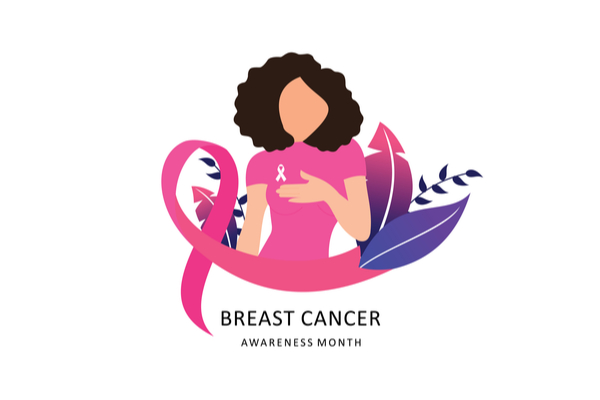Breast cancer is the most common cancer in women in the United States. About 1 in 8 women will get breast cancer during her life. And although breast cancer mostly occurs among women over the age of 45, in some cases breast cancer is diagnosed in women in their 20’s and 30’s.
Currently, about 9% of all new cases of breast cancer in the United States are found in women younger than 45 years of age, but recent studies show that number may be increasing.
According to the CDC (Centers for Disease Control and Prevention), breast cancer in young women is—
- More likely to be hereditary than breast cancer in older women.
- More likely to be found at a later stage, and is often more aggressive and difficult to treat.
- Often coupled with unique issues, including concerns about body image, fertility, finances, and feelings of isolation.
All women are at risk for getting breast cancer, but some things can raise a woman’s risk for getting breast cancer before age 45. Learning what factors increase your chance of getting breast cancer is an important first step in assessing your risk. Learning the symptoms of breast cancer also may also help you know when to talk to your doctor.
In addition to the risk factors all women face, some risk factors put young women at a higher risk for getting breast cancer at a young age.
If you are under the age of 45, you may have a higher risk for breast cancer if—
- You have close relatives who were diagnosed with breast cancer before the age of 45 or ovarian cancer at any age, especially if more than one relative was diagnosed or if a male relative had breast cancer.
- You have changes in certain breast cancer genes (BRCA1 and BRCA2), or have close relatives with these changes, but have not been tested yourself.
- You have Ashkenazi Jewish heritage.
- You received radiation therapy to the breast or chest during childhood or early adulthood.
- You have had breast cancer or certain other breast health problems, such as lobular carcinoma in situ (LCIS), ductal carcinoma in situ (DCIS), atypical ductal hyperplasia, or atypical lobular hyperplasia.
- You have been told that you have dense breasts on a mammogram.
Do any of these characteristics describe you? If so, talk to your doctor about your family history and other risk factors you might have.
—
Photo Credit: DEEMKA STUDIO / Shutterstock.com
